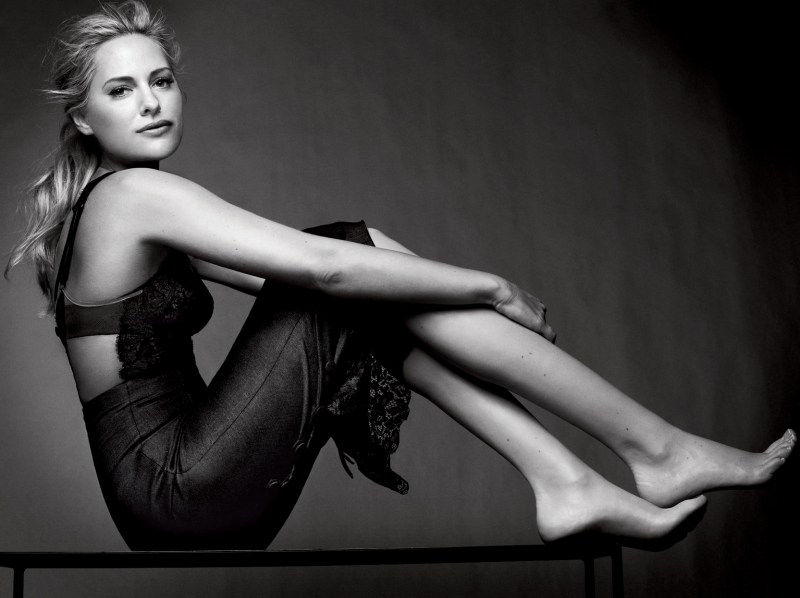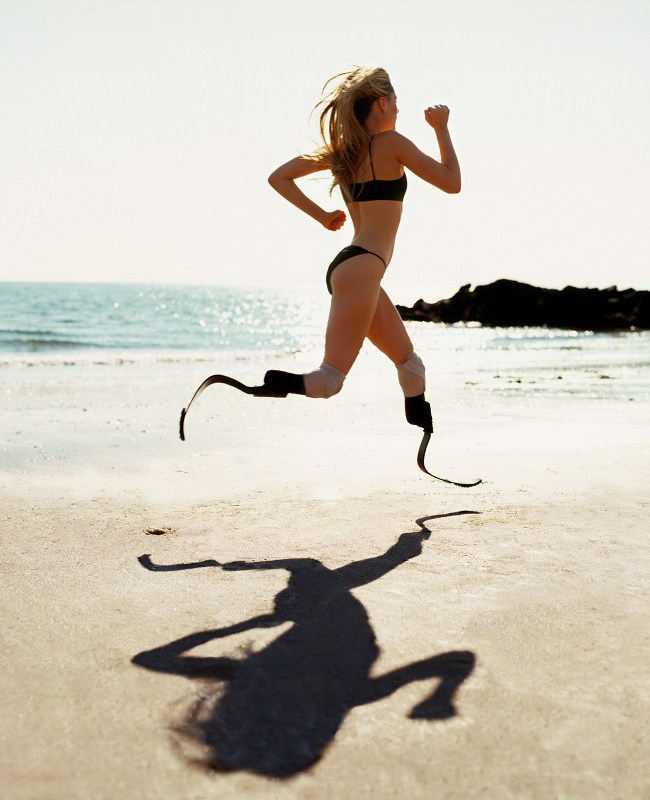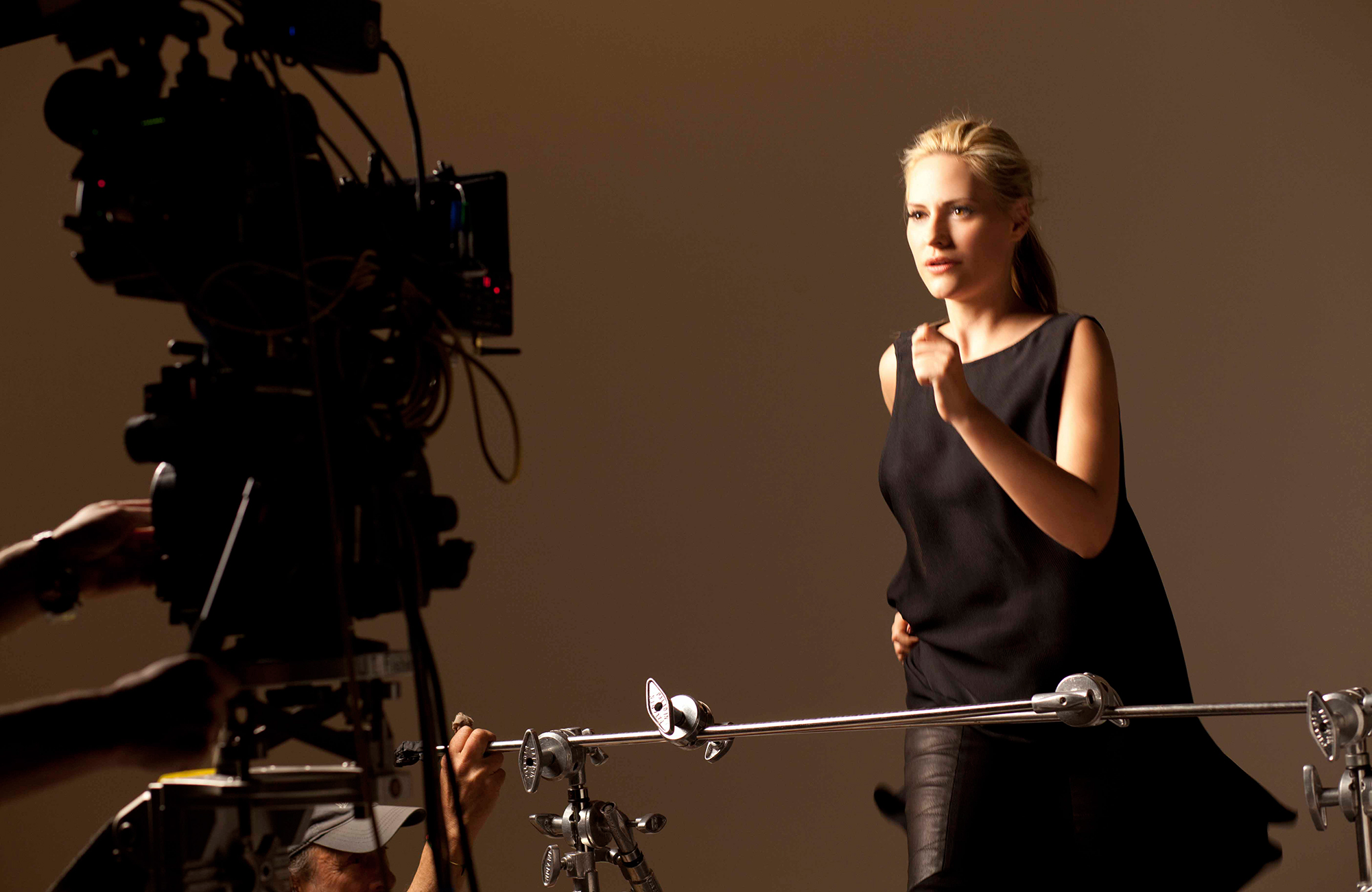Aimée Mullins, actor, Paralympian, trailblazing athlete, to deliver 2018 Commencement address

An actor in the Emmy-nominated TV show Stranger Things will deliver Northeastern University’s 2018 Commencement address on May 4 at TD Garden in Boston. A world record- setting sprinter will also deliver the address. So will a double below-the-knee amputee who pioneered the woven carbon-fiber prostheses that are now the international standard for amputee runners. So will an iconic Alexander McQueen muse and runway model. And a National Women’s Hall of Fame inductee. As well as an advocate for reforming the societal mindset around “disability” whose TED Talks have been viewed more than 7 million times.
It’s not that this year’s Commencement address will be delivered by six people, but rather one incredible person. Aimée Mullins is all of these things—actor, Paralympian, trailblazing athlete, model, advocate —and more. To each of these roles she brings a vibrant energy, a story to tell.
Northeastern President Joseph E. Aoun announced the news of Mullins’ address on Twitter Tuesday evening.
“Aimée Mullins is a true renaissance woman,” Aoun said. “Her achievements across multiple disciplines and platforms—including the arts, athletics, and public diplomacy—perfectly represent the interdisciplinary ethos we encourage our students today. As a leading voice on empowerment, self-image, and innovation, Aimée’s insights and counsel will resonate with our students as they embark on the next stage of their lives.”
The ceremony will take place before a global audience of 20,000 graduates, their families, and members of the Northeastern community as part of the university’s 116th Commencement exercises. Mullins will also receive an honorary doctoral degree.
Aimée Mullins is a true renaissance woman. Her achievements across multiple disciplines and platforms—including the arts, athletics, and public diplomacy—perfectly represent the interdisciplinary ethos we encourage our students today.
Joseph E. Aoun, Northeastern president
“I’m honored and delighted to accept the invitation of President Aoun to share stories with the 2018 graduating class of Northeastern University,” Mullins said. “I’m excited to help ignite this generation of students to create innovative ways to live and work in a more engaged and humanistic world.”
Mullins was born without fibulae, and on her first birthday, her legs were amputated below the knees. At the time, doctors told her parents she’d never walk, never lead a “normal” life. Perhaps in some ways that’s true—she’s not walking, but sprinting; not living a normal life, but an exceptional one. By age 2, she had learned to walk on prosthetic legs, and enjoyed a childhood of swimming, biking, skiing, and playing sports—as well as playing instruments in the school band and doing plays with the local theater group.
After high school, she earned a full academic scholarship from the U.S. Department of Defense and attended Georgetown University’s School of Foreign Service. She was one of only three students selected for the prestigious scholarship that year.

Mullins, who was 17 at the time, became the youngest person in the country to be given Pentagon security clearance. She worked as an intelligence analyst over the next four years during summer breaks.
When she wasn’t in the Pentagon, Mullins was immersing herself in life at Georgetown. She competed on the school’s NCAA Division I track and field team, becoming the first person with a disability to run at the collegiate level, competing entirely against able-bodied athletes.
Mullins kept setting new benchmarks for herself. Next? Competing for the U.S. in the 1996 Paralympic Games in Atlanta. In order to be competitive, she needed something other than the heavy, wooden prostheses she’d grown up with. Thus was born first-of-their-kind carbon-fiber prostheses designed to imitate the hind legs of a cheetah.
I’m excited to help ignite this generation of students to create innovative ways to live and work in a more engaged and humanistic world.
Aimée Mullins, Actor, Paralympian, trailblazing athlete, 2018 Commencement speaker
In an interview with Icon Magazine, Mullins said: “I thought, If I’m going to be the fastest woman on prostheses in the world, why are we looking at human legs with calves and feet? Why aren’t we looking at what runs fastest—the cheetah?”
That year, she set world records in the 100-meter, the 200-meter, and the long jump, and the prostheses she pioneered have become the international standard for amputee runners.
Mullins’ success sparked national attention and set in motion several new career paths and opportunities—one as a model wearing one-of-a-kind, hand-carved wooden legs in an Alexander McQueen runway show; another as a profile subject for several heavy-hitting magazines including Vogue, Harper’s Bazaar, W, i-D, Glamour, and Elle.

Perhaps most influentially, Mullins became an advocate for changing the way we think about disabilities, body image, and beauty. She went on to sign a landmark global beauty contract with L’Oréal Paris, the largest cosmetics company in the world.
Mullins took her iconic fashion and design world status into a long-standing collaboration with artist Matthew Barney, with whom she has worked on a number of lauded art projects including the famous Cremaster Cycle at the Guggenheim, in which she played eight different roles. In many of these installations, Mullins wore various sculptural legs which showcased her declaration that prosthetics can be wearable art as opposed to just a functional replacement of a body part.
In one of her five TED Talks, viewed millions of times, Mullins explained how her relationship to prosthetics changed her relationship to her body’s abilities. “The people that society once considered disabled can now become the architects of their own identities, and indeed continue to change those identities by designing their bodies from a place of empowerment,” she said in the 2009 speech.
Mullins serves on the boards of various nonprofit organizations, including the Women’s Sports Foundation, which was founded by tennis great Billie Jean King and where she served as president from 2007 to 2009. Mullins also served four years as vice president of the nation’s oldest nonprofit employment service for people with disabilities, Just One Break, becoming the first woman on the board since the organization was founded in 1947 by Eleanor Roosevelt. And when Hillary Clinton was Secretary of State in 2012, she appointed Mullins to the State Department’s Council to Empower Women and Girls Through Sports.

Mullins has been honored by prestigious institutions such as the Smithsonian, the Metropolitan Museum of Art, the NCAA Hall of Fame, the Victoria and Albert Museum, the Tate Modern, and the Track and Field Hall of Fame. The Women’s Museum recognized her among the “Greatest American Women of the 20th Century,” and in 2017 she became one of the youngest inductees to the National Women’s Hall of Fame.
In another TED Talk from 2009, Mullins illuminated the thread that runs through her life. “I think that if we want to discover the full potential in our humanity, we need to celebrate those heartbreaking strengths and those glorious disabilities that we all have,” she said. “It is our humanity, and all the potential in it, that makes us beautiful.”
Northeastern’s past Commencement speakers include an wide-ranging group of leaders and public figures, including U.S. Sen. John F. Kennedy (1956); President Bill Clinton (1993); former Soviet leader Mikhail Gorbachev (1998); poet and civil rights activist Maya Angelou (1992), Homeland Security Secretary Janet Napolitano, and secretaries of state John Kerry (2016) and Madeleine Albright (2000); former Secretary of State Colin Powell (2012); and CNN’s chief international correspondent Christiane Amanpour (2017).





